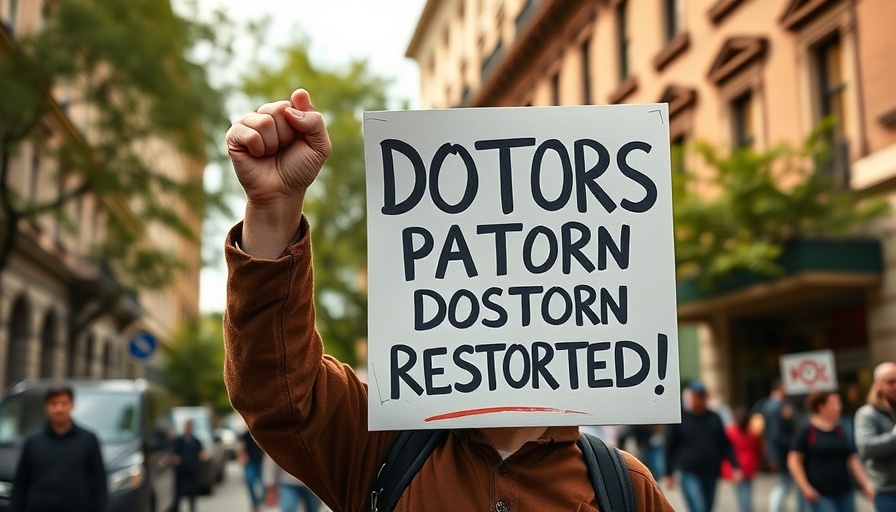
Health secretary's meeting with the BMA: a critical juncture for the NHS
The impending discussions between Health Secretary Wes Streeting and the British Medical Association (BMA) represent more than just another round of negotiations; they spotlight the growing tension within the NHS and the frustrations of resident doctors. Just days ago, these medical professionals announced a five-day strike beginning on July 25, driven by a bitter dispute over pay. After suffering through years of stagnated wages, these doctors find themselves in a position where compromise is necessary, but elusive.
The crux of the issue: pay disputes
Resident doctors, who were previously labeled as junior doctors, are poised to leave their posts once again. Their bold stance emerges from a stark reality: the 5.4% pay rise offered for this financial year is a drop in the bucket compared to inflation and rising living costs. After two years of substantial increases, they argue that their current earnings still reflect a 20% decline from wages in 2008. This isn’t just about numbers on a paycheck; it’s about maintaining a living wage in the face of relentless cost-of-living increases. As they put it, they need a pathway back to fair wages.
Public opinion swings against striking doctors
Interestingly, public sentiment toward the doctors' strike appears to be shifting. A recent Ipsos poll indicates a decline in public support for such industrial action, plummeting from 52% to 26% since last June. This shift raises questions not only about the doctors' strategy but also about the crucial public trust that healthcare workers rely on. Notably, political figures like Lord Robert Winston — a well-respected professor and medical pioneer — have expressed opposition to the strikes. His resignation from the BMA signals deeper fractures within the medical community.
The tension between working conditions and salaries
While Streeting has stated unequivocally that salary negotiations will not budge beyond the proposed 5.4% increase, he acknowledges the pressing need to improve working conditions. The burning question becomes: can these talks lead to substantial changes that benefit doctors and patients alike? Streeting’s rhetoric highlights a tension between the necessity for economic prudence on the government’s part and the dire need for reform on the doctors' side.
What’s at stake for patients and the NHS
The implications of a prolonged strike could send shockwaves through an already strained NHS. Streeting muses, “The NHS is hanging by a thread,” warning that further industrial action could sap progress in alleviating waiting lists and delivering quality healthcare. This rhetoric resonates especially in the Midlands, where the NHS facilities often juggle substantial patient loads with limited resources.
Possible outcomes: the need for a compromise
The next few days are critical. Both parties have expressed a willingness to engage in discussions, which is a hopeful sign. The BMA has made it clear that they are keen on finding a resolution to prevent strikes, but significant concessions on pay will likely be necessary to achieve any meaningful results. Failure to reach an agreement could mean that doctors will walk out as scheduled, and services will be disrupted.
Final thoughts: What's next for the NHS?
If we are truly invested in the health of our community, we must advocate for both the rights of our doctors and the needs of our patients. Everyone deserves access to adequate healthcare, and that includes ensuring our healthcare providers are compensated and supported fairly.
So what can you do? Engage in discussions within your community. Raise awareness about these issues at local forums. Our healthcare system's integrity depends as much on public involvement as it does on negotiations behind closed doors.
 Add Row
Add Row  Add
Add 




Write A Comment